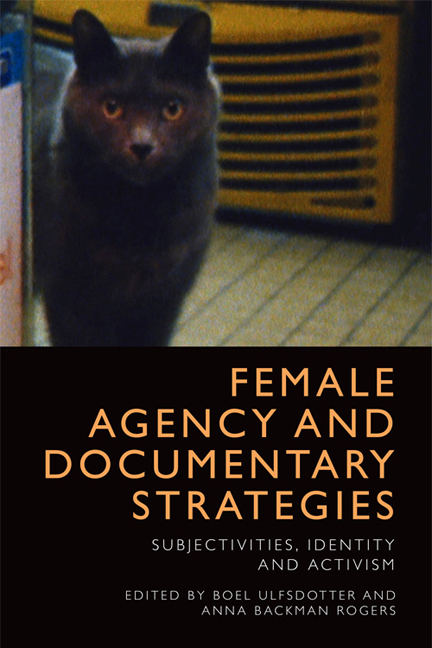Foreword
Published online by Cambridge University Press: 28 April 2021
Summary
Contemporary documentary media is an expansive domain. Alongside established forms and platforms we find multifarious practices that intersect in a multitude of ways with the documentary ‘project’ broadly considered. Documentary, as we know, is always evolving and this is very apparent in the work collected here in this second volume of Female Authorship and the Documentary Image. The collection embraces this expansive and evolving domain of documentary practice, interrogating the very idea of authorship and creating a fertile dialogue between emerging and established practices and scholarship.
Organised into four thematic parts, new media and activism, selfhood and subjectivities, identity politics of documentary and the personal is political, the collection brings a fresh perspective to the study of gender and the documentary tradition. These four themes highlight a key achievement of the collection, the links it creates between contemporary documentary practices in all their diversity and the fundamental questions of film, media and documentary scholarship. The editors and contributors challenge the reader to reconsider the idea of authorship from multiple perspectives, reflecting their very different academic orientations. Key themes include: the connection between authorship, place, culture and global politics; the changing nature of collaborative authorship and the need for a more nuanced consideration of context; and the changing nature of self-representation in a digital media culture. What emerges is a picture of the fluidity and richness of female authorship today.
A particularly important strand of inquiry that runs through the collection is the importance of contexts for any attempt to understand female documentary authorship. Contributions draw attention to the intersections between gender and culture, nationality, politics, economics and personal and family histories. Female authorship admits of no ‘one size fits all’ theoretical or conceptual treatment. Importantly, a number of the chapters highlight the limitations of Euro-Western theoretical frameworks, drawing attention to the ways in which documentary makers skilfully negotiate and explore multiple identities and speaking positions in their work.
A particular value of the collection is, as I have already noted, its embrace of emerging platforms and practices that intersect with documentary. There are chapters on blogging, social media activism and forms of digital self-representation. In thinking through these emerging practices the writers move beyond a simplistic celebration of technological advancement to engage deeply with the practices of women who are exploring new potentials for documentary expression.
- Type
- Chapter
- Information
- Female Agency and Documentary StrategiesSubjectivities, Identity and Activism, pp. xiii - xivPublisher: Edinburgh University PressPrint publication year: 2018



